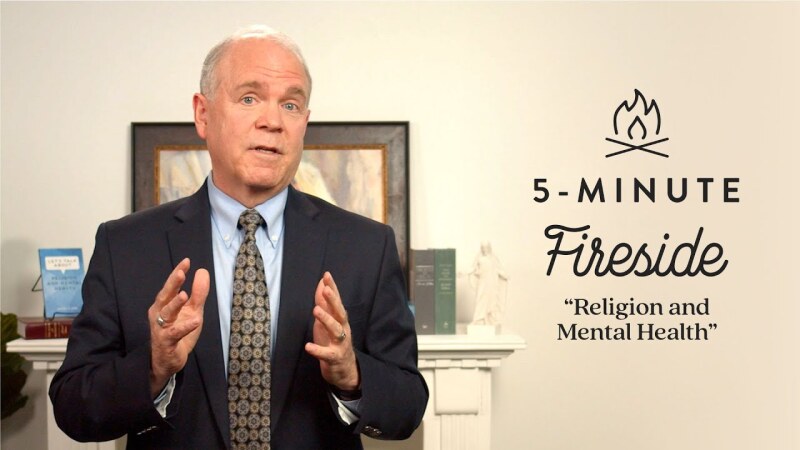When it comes to mental health, people are often tempted to choose between two contrasting approaches: faith and reason. But these two might be a pair of opposite errors, according to Daniel K Judd, a professor of religious education at Brigham Young University who studies the relationship between religion and mental health.
► You may also like: How to let religion benefit, not damage, your mental health
In his recent “5-Minute Fireside,” Judd quotes Christian author C.S. Lewis’s Mere Christianity to illustrate the problem when we focus too much on faith or reason in our efforts to manage mental health challenges:
“The devil always sends errors into the world in pairs—pairs of opposites. And he always encourages us to spend a lot of time thinking which is the worse. You see why, of course? He relies on your extra dislike of the one error to draw you gradually into the opposite one. But do not let us be fooled. We have to keep our eyes on the goal and go straight through between both errors.”
According to Judd, “Faith and reason are not at odds but are companion principles in our pursuit of truth and peace.” He says that neither of these two principles should be discounted because both principles are “perfectly expressed in the character of Christ and are intended to help us become like Him.”
► You may also like: How Steve Young believes anxiety helped him become the man he is today
Taken to an extreme, the principle of faith in God can lead to “mysticism”—relying exclusively on emotion or magical thinking that disparages reason. Conversely, taking reason to an extreme can result in “scientism,” which says that only reason and science can produce real knowledge.
“Many of the individuals and families with whom I have worked over the years have overcome mental and emotional adversity and affliction and have found peace and happiness. Others have not,” says Judd. But he believes that most mental health challenges can be managed by a combination of faith and science that includes the following elements:
- Supportive family
- Inspired leaders
- Good friends
- Skilled physicians
- Wise use of medication
- Competent counselors
- Hard work by the individuals involved
- Faith in Christ
► You may also like: When Latter-day Saints should seek professional help and counseling outside Church leaders
Watch the video below to learn more about the complementary roles of faith and reason in managing mental health, including what the “fortunate Fall” of Adam and Eve teaches us about tackling life’s challenges.

